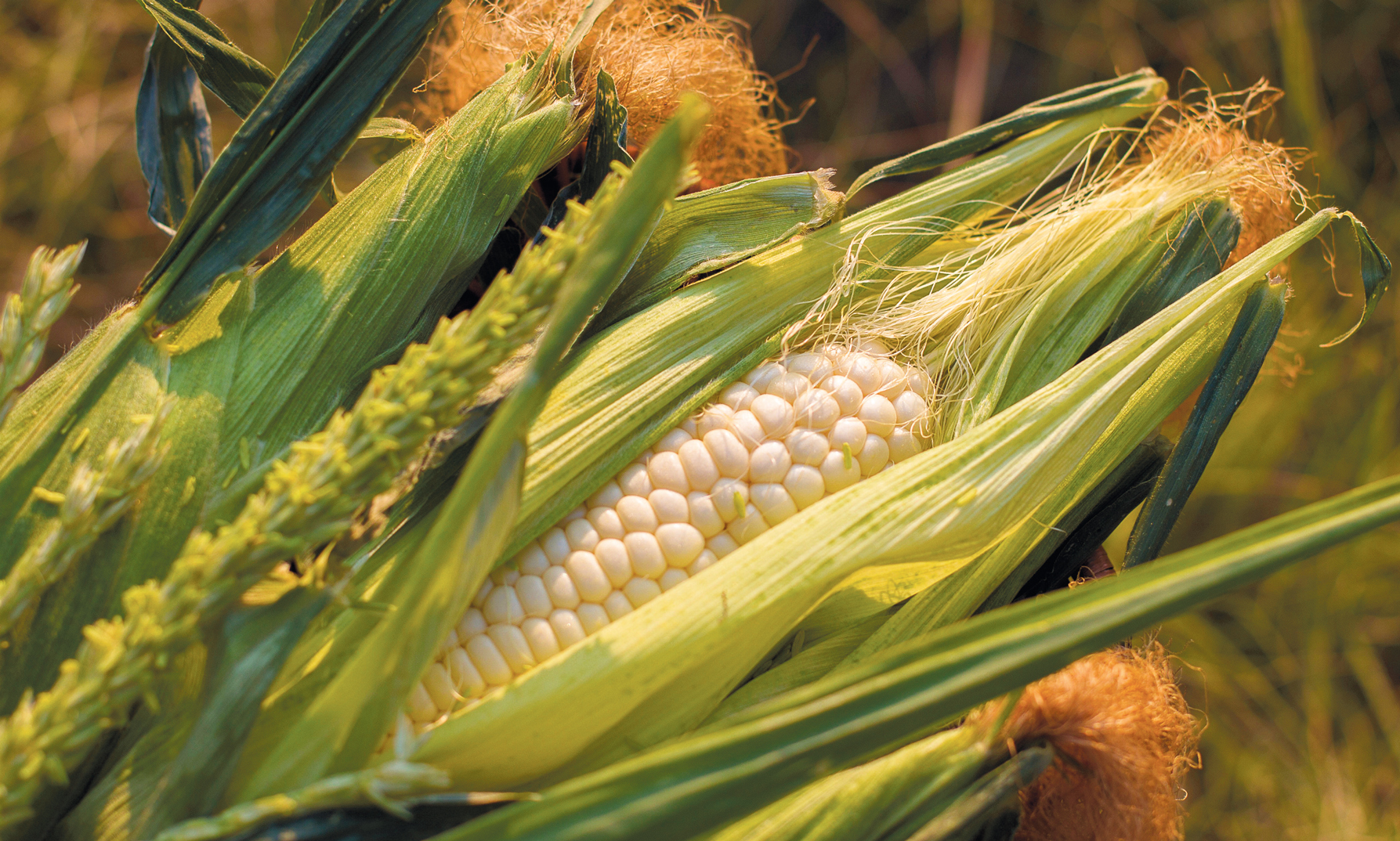Amaized
On what may have seemed like an ordinary day in the summer of 1989, Crookham Seed Company's lead breeder, George Crookham, and his associate Bruce Hobdey stumbled across a spindly little plant in one of the testing fields. Twenty-four years later, they can still tell you the location of that field, and the approximate spot where they discovered "the one."
An ear of corn was taken back to the lab, along with many others, and sampled by testers in their own solitary quarters. George Crookham, keeping meticulous notes, wrote on that memorable day something to the effect of, "What I'm eating, on a scale of one to five, is, I'm sure, a five, plus five, plus five."
"There it is," Crookham and Hobdey reported to each other. Though Crookham and Hobdey bit into thousands of ears of corn each year, they knew this one small ear was different. It was sweet as an apple, and did not turn mushy or chewy once incisors got involved, as other corn often did.
"It popped when you bit into it, and went crunch, crunch, crunch," says Crookham, "We just couldn't believe it." They were, in a word, amazed.
That was, however, only the beginning. That one-in-a-million plant was a weak one. It fell over. It had a problem with tip fill, which is when the ear doesn't fill in all the way to the tip. The ear's coloring, a pale yellow, was not considered consumer-friendly, since Americans are prone to initially eating with their eyes. The taste and what Crookham calls 'pop and crunch' were the only good things about it.
They had to fix everything, Crookham says. They couldn't use weakling plants that constantly toppled, couldn't sell a strangely hued corn, and had to get rid of the tip fill issue.
The fourth generation, family-owned Crookham Company of Caldwell, now operating in its 102nd year, breeds corn the non-GMO way, the way their forefathers have always done it for generations. Two of their inbred corn plants just happened to pair perfectly to create a miraculous result, but only those two. Trying to combine color, strength, flavor and texture qualities, was going to be a chore. When those at the seed company attempted it, crossing those same inbreds with others, the flavor and texture just wasn't there.
"Breeding is part art, part science, and part luck," Crookham explains, "We went through thousands of variations, but most failed."
You've got to be a rare breed yourself to be interested in vegetable breeding, comments Crookham. As the company's lead breeder for twenty years, ninety-nine percent of what he produced never saw the market. While frustrating, a discovery like the corn that was eventualy named "Amaize" makes it all worth it.
Crookham Company products generally take about ten years to bring to the public, but because of its issues, Amaize took twenty-two long years to develop fully. The end result was unique, sporting surprising pure white kernels.
"We didn't necessarily plan that," Crookham says, "the first product that had all of the desired characteristics just happened to be white."
Not casual when it comes to releasing something new, the folks at Crookham tasted, tested and tasted some more. Then they turned Amaize over to a panel of twenty-nine of the world's best sweet corn experts for a blind taste test. Twenty-eight enthusiastically said, "that one."
In its second year on the market, Amaize's growth in popularity has been phenomenal. Worldwide, trials are slated for Japan this year, and then New Zealand in 2014. Eastern Europe is also discovering the beauties of a good ear of corn. The U.S. market consumes the most sweet corn thus far.
Beyond the corn, it may not be generally known that the state of Idaho is one of the leaders in vegetable seed production. At one time, Crookham says, Idaho generated as much as 85% of the world's hybrid sweet seed. Southwest Idaho specifically, with its location, climate, soil and water, touts perfect conditions for its current production of approximately 55% of the planet's hybrid sweet corn seeds.
Crookham sells seed out of Caldwell, Idaho, to every continent but Antarctica.





